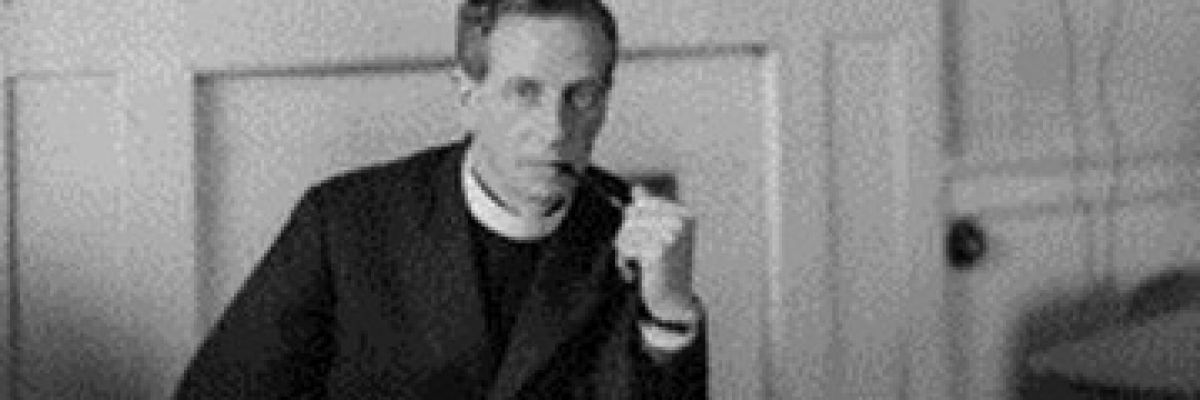
After some years away from him, I’m back on a Ronald Knox jag. I’ve got several shelves of his books—nearly everything he wrote—and a few nights ago compared what I have to the listing of his works in Evelyn Waugh’s biography of him. Of the few titles I didn’t have, I found some at online book dealers, so three are on their way to me.
One book I hadn’t taken down from the shelves in a long while was Essays in Satire, published in 1930. Two of the essays particularly caught my attention. (I had read them before, but they have new meaning for me now.)
One was “Materials for a Boswellian Problem,” in which Knox treats Boswell’s Life of Johnson the way many biblical scholars treat the synoptic Gospels or the Pentateuch, as patchworks of disparate and sometimes contradictory materials that have been formed into wholes by later redactors. It’s a hoot. To read the essay is to realize at once how flawed so much modern biblical scholarship has been.
The other essay was “A Forgotten Interlude.” It’s the transcript of a BBC talk that Knox gave on January 16, 1926. The talk aired as “Broadcasting the Barricades.” Orson Welles’ famous 1938 War of the Worlds radio drama was done in its style.
In Knox’s radio talk we have what appears to be a BBC news broadcast that consists of multiple stories, the chief one being about a mob that forms in Trafalgar Square and marches on the Houses of Parliament. The mob is led by a Mr. Popplebury, Secretary of the National Movement for Abolishing Theatre Queues.
The radio announcer breaks away to talk about other events but keeps returning to the mob, which eventually sacks the National Gallery and then demolishes the Houses of Parliament with trench mortars. “The Clock Tower, 320 feet in height, has just fallen to the ground, together with the famous clock, Big Ben, which used to strike the hours on a bell weighing nine tons. Greenwich time will not be given this evening by Big Ben, but will be given from Edinburgh on Uncle Leslie’s repeating watch.” (Knox was broadcasting from the BBC studio in Edinburgh.)
Just before the destruction of Parliament, the announcer says that “Sir Theophilus Gooch, well-known for his many philanthropic schemes, will now address you on Housing of the Poor.” The address is never given: “From reports that have just come to hand it appears that Sir Theophilus Gooch, who was on his way to this station, has been intercepted by the remnants of the crowd still collected in Trafalgar Square, and is being roasted alive.”
There immediately follows a particularly mordant comment: “Born in 1879, Sir Theophilus Gooch entered the service of Messrs. Goodbody, the well-known firm of brokers. He very soon attracted the notice of his employers. However, nothing was proved, and Sir Theophilus retired with a considerable fortune.”
Knox’s broadcast caused a big stir, some people apparently tuning in too late to catch the introductory remarks that explained it was a satire. (Welles would frighten far more people with his broadcast twelve years later.)
In 2005 the BBC restaged the broadcast (the original had not been recorded), but I haven’t been able to find a link to it. Even though I can’t affect a British accent, I’m tempted to read the script on Catholic Answers Live someday, as a salute to Knox, the 125th anniversary of whose birth is today.



